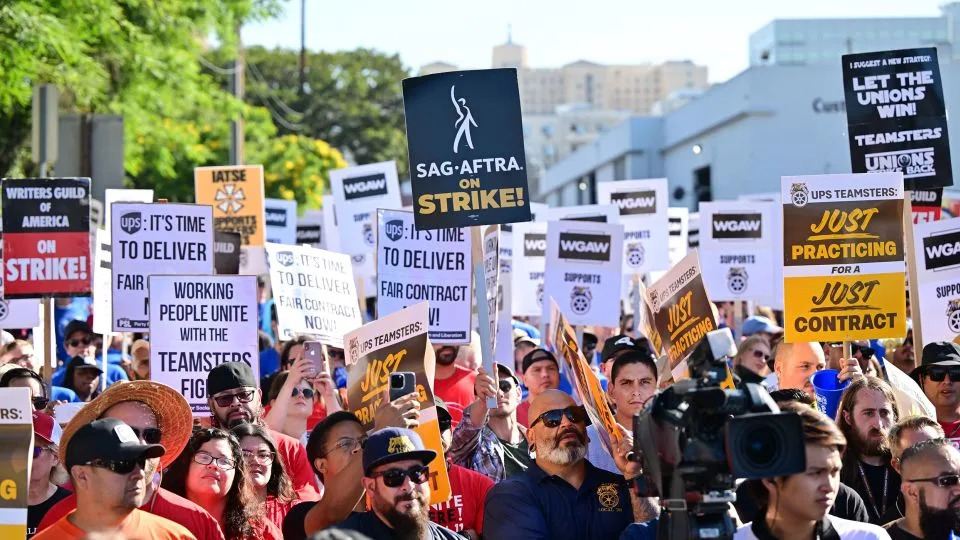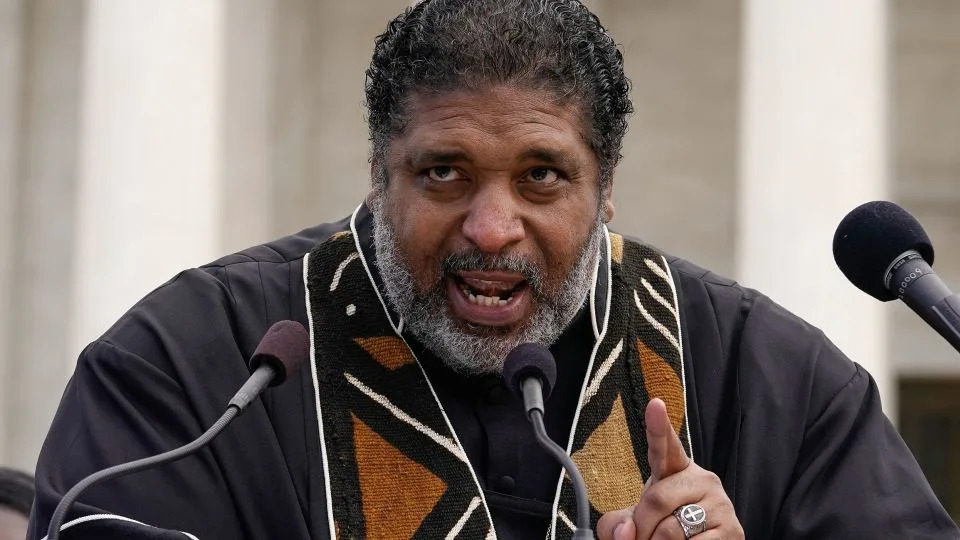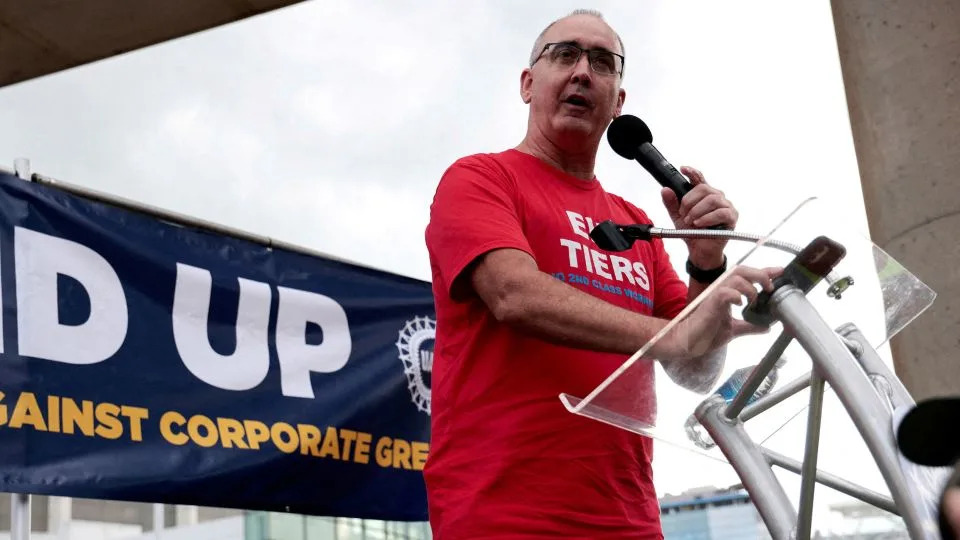
Roundup and analysis of the top headlines on health security, pandemic preparedness, COVID-19, and other news from the Johns Hopkins Center for Health Security
Please note that some links may require subscription or registration
November 16, 2023
Note: We will not publish on November 23 in observance of the US Thanksgiving holiday. We will resume publication on November 30.
TOP NEWS
US respiratory virus season in full swing; other nations see increased flu activity
The respiratory virus season in the US is in full swing, with the “tripledemic” diseases—RSV, flu, and COVID-19—increasing nationwide, especially in the South. Influenza-like illnesses (ILI) have exceeded the baseline, marking the onset of flu season. This is its second earliest start in 6 years, with 2.9% of doctor visits nationwide being for symptoms like fever, cough, or sore throat. Puerto Rico has declared an influenza epidemic, with high levels of activity and numerous hospitalizations and deaths, particularly among unvaccinated older adults and children. RSV is also at a very high level, with some US states experiencing intense seasons despite expectations of a calmer year.
For the first time in US history, vaccines for all 3 major respiratory viruses are available this fall, but vaccination rates for COVID-19 and RSV remain significantly lower than for flu. Experts continue to highlight the importance of vaccination, especially for those at higher risk of developing serious complications, including older adults and those with underlying medical conditions. About 36 million adults in the US—about 14% of the US adult population—have received the updated 2023-24 COVID vaccine, whereas nearly 35% of the US adult population have received the flu vaccine. As for those aged 65 years and older, 57.6% have received the flu vaccine and 13.5% of adults aged 60 and older have gotten an RSV vaccine.
Among children, only 4.9% have received the updated COVID vaccine and 32.6% have received a flu vaccine. Though there is a new monoclonal antibody shot to lower the risk of RSV-related hospitalization among newborns, premature infants, or young children with health conditions that put them at higher risk, shortages of the new tool have raised concern as the nation enters what could be another severe RSV season.
Flu activity is up in some other Northern Hemisphere locations and tropical countries. In East Asia, China and South Korea saw increased flu levels, while several nations in Southeast Asia, Southern Asia, and the Americas also reported rises. In the last half of October, 86% of positive flu samples were influenza A, including the H3N2 and 2009 H1N1 subtypes.
Climate change poses serious risks to human health, wellbeing, Lancet Countdown report, other groups warn ahead of COP28
Several new reports were released this week ahead of the global climate summit known as COP28, taking place in Dubai November 30 to December 12. In addition to reports from the UN Framework Convention on Climate Change, the World Economic Forum, a group of 7 climate organizations, and the US government, the Lancet Countdown on health and climate change published its eighth report. Together, the reports warn in no uncertain terms, that rising temperatures are already impacting human health and, if left unabated, will have catastrophic consequences for human survival.
Among some of the impacts seen already: heat-related deaths are rising; air pollution is increasing the risk of death and adverse outcomes from various conditions; serious and life-threatening bacteria are spreading into new areas due to warming waters; disease-carrying insects and dangerous fungal spores are moving into new territories; and food insecurity is affecting a record number of people worldwide.
As part of its Fifth National Climate Assessment—which says climate change-associated threats pose risks to the economy, human health, ecosystems, buildings, homes, and infrastructure like roads, with impacts that could exacerbate existing inequalities—the US government published an interactive atlas to help Americans anticipate how changing climate conditions might affect their homes and businesses. There are some signs of progress, but experts agree that more actions must be taken on climate and health to avoid a “dangerous future.”
MORE HEADLINES
PAHPA reauthorization unlikely this year due to political disagreements, lack of engagement; 100 stakeholder groups call for quick action; commentary proposes how to best prepare for next pandemic
Axios: Pandemic prep bill falls victim to COVID politics
The Telegraph: How to break the cycle of panic and neglect surrounding pandemics (commentary)
US House approves amendment to HHS spending bill that would ban on federal funding for so-called gain-of-function research; scientists worry provision could hinder important research if passed
STAT+: House moves to limit so-called gain-of-function research
Science: House approves ban on gain-of-function pathogen research
See also: Hopkins Bloomberg Public Health Magazine: Gain-of-Function Research: Balancing Science and Security
WHO says Israeli military incursion of Gaza hospital ‘totally unacceptable’; UN human rights chief says disease outbreaks, hunger ‘inevitable’
Reuters: WHO says Israeli raid on Gaza hospital is totally unacceptable
New York Times: Israel Seizes Gaza Hospital That Became Symbol of the War Itself
Health Policy Watch: Israeli Troops Enter Shifa Hospital – WHO Decries Move as “Totally Unacceptable”
Reuters: U.N. human rights chief says widespread disease, hunger inevitable in Gaza
NBC News: Disease runs rampant in Gaza as clean water runs out
International Committee of the Red Cross: The protection of hospitals during armed conflicts: What the law says
See also: The Telegraph: ‘Tragic milestone’ hit as 1,000 attacks against doctors and hospitals recorded in Myanmar
Americans’ trust in science, scientists lower now than before pandemic, survey finds; US CDC director works to restore trust in agency
Pew Research Center: Americans’ Trust in Scientists, Positive Views of Science Continue to Decline
STAT: One-quarter of Americans have little to no confidence in scientists to act in public’s best interests, per report
Washington Post: How CDC’s new director is trying to regain trust shattered by covid
Recent conference sessions, journal article, blog post address various aspects of rebuilding trust in science
American Public Health Association: Fighting for Public Health: Coming Together in a Divided World
International Science Council: Reframing Trust in Science for Multilateral Policy: Insights from the Science Journalists Forum
Psychological Science: Vaccine Nationalism Counterintuitively Erodes Public Trust in Leaders
Gavi VaccinesWork: To Prevent the Next Pandemic, Follow the Science
Generative AI could spread more convincing health misinformation, guardrails needed, experts warn
Axios: Deepfakes could supercharge health care's misinformation problem
Flinders University: Medical researchers find AI fails pub test
Review, commentary examine misinformation during COVID-19 pandemic, effectiveness of interventions, impacts
Health Affairs: A Systematic Review Of COVID-19 Misinformation Interventions: Lessons Learned
JAMA Internal Medicine: Health Disinformation—Gaining Strength, Becoming Infinite (commentary)
Routine vaccination exemptions at record high level among US kindergartners, CDC report shows
CBS: School vaccination exemptions now highest on record among kindergartners, CDC reports
ABC: Exemptions for routine childhood vaccination at highest level ever: CDC report
Your Local Epidemiologist: Drop in routine vaccinations
See also: AP: UK experts recommend chickenpox shot for kids for the first time, decades after other countries
Nations must redouble efforts to fill gaps in measles vaccination coverage to prevent future outbreaks, make progress toward elimination, report says
ABC News: "Staggering" rise in global measles outbreaks in 2022, CDC and WHO report
MMWR: Progress Toward Measles Elimination — Worldwide, 2000–2022
COVID-19 contributed to widening gender gap in US life expectancy, now 73.2 years for men, 79.1 for women
STAT: Life expectancy for men in U.S. falls to 73 years — six years less than for women, per study
JAMA: Widening Gender Gap in Life Expectancy in the US, 2010-2021
About 20% of COVID-19 patients experienced virologic rebound after taking Paxlovid, study shows; WHO releases 13th update of COVID-19 treatment guidelines
STAT: Study suggests Covid rebound is far more common with Paxlovid than without
See also: WHO release: WHO updates guidelines on treatments for COVID-19
Receiving COVID, flu vaccinations at same time safe, effective, and might produce more immune response against SARS-CoV-2, studies suggest; about 36M people in US have gotten updated COVID jab
CIDRAP: Coadministration of COVID, flu vaccines as effective as when given separately, data suggest
NBC News: Should you get your Covid and flu shots at the same time? New research suggests yes
ABC News: About 36M American adults have received the updated COVID vaccine: CDC
“The key thing is to see if this has any kind of meaningful clinical benefit – do the higher levels of antibody translate into more protection against infection or disease?” – Dr. Amesh Adalja, Senior Scholar at the Center for Health Security, told The Guardian about the study, which is not yet peer-reviewed.
COVID, flu vaccine uptake lagging among US healthcare workers, CDC studies show
CIDRAP: COVID, flu vaccine uptake in US healthcare workers lacking
MMWR: Influenza and Up-to-Date COVID-19 Vaccination Coverage Among Health Care Personnel — National Healthcare Safety Network, United States, 2022–23 Influenza Season
MMWR: Declines in Influenza Vaccination Coverage Among Health Care Personnel in Acute Care Hospitals During the COVID-19 Pandemic — United States, 2017–2023
As scientists learn more about how long COVID affects the brain, task force publishes consensus guidance on treatment of mental health symptoms in long COVID patients
NPR: Scientists are beginning to understand how long COVID symptoms affect the brain
NPR: Pain, fatigue, fuzzy thinking: How long COVID disrupts the brain
MedPage Today: Long COVID and Mental Illness: New Guidance
See also: New York Times: Can’t Think, Can’t Remember: More Americans Say They’re in a Cognitive Fog
Texas governor signs bill banning COVID-19 vaccine mandates for all private businesses, including hospitals
Texas Governor: Governor Abbott Signs COVID Vaccine Freedom Bill At Governor’s Mansion
Undark: Texas Implements a New Ban on Covid-19 Vaccine Mandates
Articles address steps companies, schools, individuals can take to improve indoor air quality
Harvard Business Review: It’s Time for Companies to Monitor Workplace Air Quality
US Green Building Council: Takeaways and next steps for school district leaders after IAQ workshop
Forbes: How Spending Long Winter Days Indoors Can Impact Your Health
BMJ investigation examines concerns over informed consent for pregnant women who participated in Pfizer RSV vaccine trial
The BMJ: The BMJ investigates concerns over informed consent for pregnant women in Pfizer’s RSV vaccine trial
The BMJ: Concerns over informed consent for pregnant women in Pfizer’s RSV vaccine trial
US CDC updates 2014 guidelines for preventing, treating naturally occurring anthrax
CIDRAP: CDC updates advice for preventing, treating anthrax
CDC MMWR: CDC Guidelines for the Prevention and Treatment of Anthrax, 2023
DRC continues fight against mpox as disease fades from global spotlight; researchers develop mpox severity scoring system for all clinical settings
Gavi VaccinesWork: Fading from global headlines, mpox continues to trouble its ‘cradle’ – DRC
CIDRAP: Scientists develop mpox severity scoring system that could improve care, research
Georgetown center launches open-access database to track wildlife diseases; researchers confirm CWD for first time in Yellowstone National Park mule deer
Georgetown University School of Medicine: Georgetown Global Health Center Launches First Open-Access Wildlife Disease Database
See also: CIDRAP: CWD confirmed in Yellowstone National Park for first time
Avian flu not impacting turkey, egg prices in US ahead of Thanksgiving; Italy, Peru, South Africa report on bird flu outbreaks, containment
Axios Des Moines: Avian flu isn't gouging turkey, egg prices this Thanksgiving
Reuters: Italy reported bird flu outbreak on farm, WOAH says
Emerging Infectious Diseases: Highly Pathogenic Avian Influenza A(H5N1) from Wild Birds, Poultry, and Mammals, Peru
Reuters: S.Africa says bird flu under control, egg supply improving
See also: CIDRAP: Major poultry producers agree to antimicrobial stewardship principles
US FDA approves first vaccine for mosquito-borne chikungunya virus
Washington Post: FDA approves first vaccine against mosquito-borne virus chikungunya
Fox News: First vaccine for chikungunya virus, an 'emerging global health threat,' gets FDA approval
See also: Mercury News: Southern California confirms 1st human case of mosquito-borne St. Louis Encephalitis since 1984
Warmer, wetter weather contributes to longer, more widespread dengue outbreaks in Asia
Reuters: Rising temperatures, longer monsoon drive Bangladesh's worst dengue outbreak
Nikkei Asia: Dengue fever sweeps through Asia, helped by hotter and wetter weather
See also: Duke NUS Medical School: New research shows maternal dengue immunity worsens birth defects caused by Zika virus
US FDA authorizes first home test for 2 STIs; UK panel recommends use of meningitis vaccine for gonorrhea; new antibiotic, developed under new model, could treat drug-resistant gonorrhea
CNN: FDA authorizes first home test for chlamydia and gonorrhea
STAT: U.K. recommendation could lead to world’s first use of meningitis vaccine to curb gonorrhea
New York Times: Gonorrhea Is Becoming Drug Resistant. Scientists Just Found a Solution.
UK authorizes world’s first-ever CRISPR-based gene therapy for 2 blood disorders
Reuters: UK authorises gene therapy for blood disorders in world first
STAT+: U.K. approves world’s first CRISPR-based medicine, giving greenlight to therapy for sickle cell, thalassemia
Series examines ways to ‘fix’ US hospitals; low-income countries’ healthcare systems hold lessons for those in high-income nations, doctor says
Third Way: Fixing America's Broken Hospitals
NPR: What the Global South could teach rich countries about health care — if they'd listen
See also: Global Health NOW: Africa’s Contribution to Global Health Security
FROM THE CENTER
More than 100 stakeholder groups join Center for Health Security in calling on US Congress leadership to reauthorize PAHPA
This week, more than 100 stakeholders, including the Johns Hopkins Center for Health Security, Biotechnology Innovation Organization (BIO), Association of State and Territorial Health Officials (ASTHO), and other groups representing academia, industry, and research institutes, sent a letter to congressional leadership urging them to reauthorize the Pandemic and All-Hazards Preparedness Act (PAHPA) before the end of the calendar year and with the same bipartisan support it has had since its original authorization 17 years ago.
“Our nation’s changing health security threat landscape and the federal government’s responsibility to protect the American people demand that we work together now to find a strong bipartisan path forward to reauthorize this critical legislation,” write the signatories. “Failing to reauthorize PAHPA would have serious effects on our country’s economic well-being, national security, and health security given the rapidly changing threat landscape.”
See a full list of signatories and read the full letter here: https://centerforhealthsecurity.org/2023/more-than-100-stakeholder-groups-call-on-us-congress-leadership-to-reauthorize-pahpa












